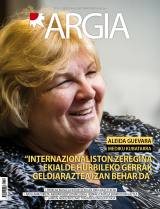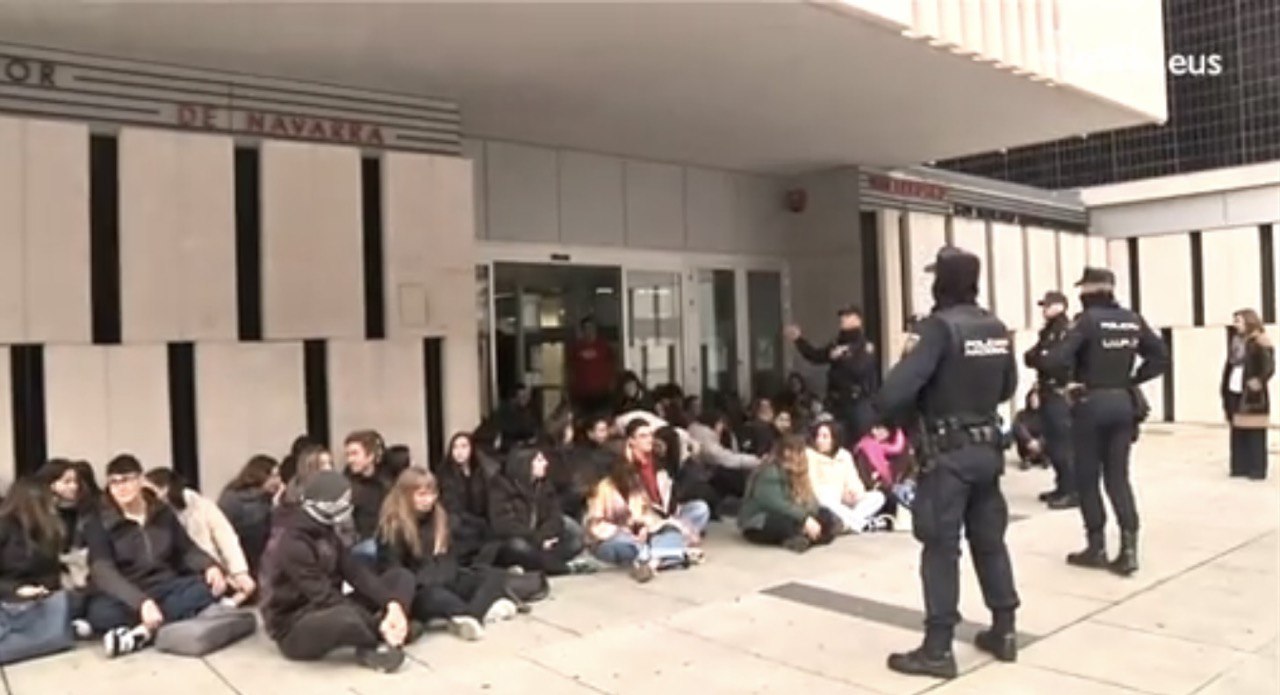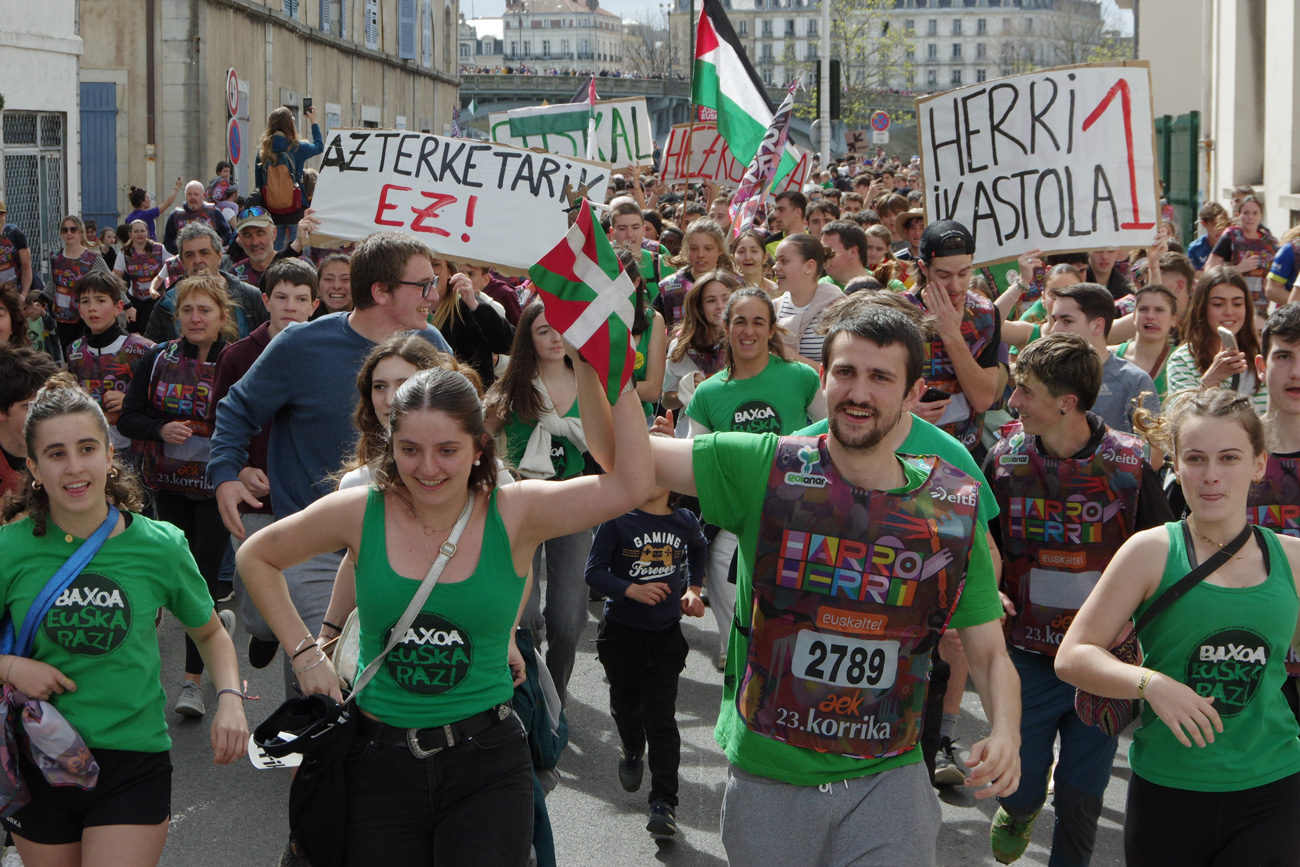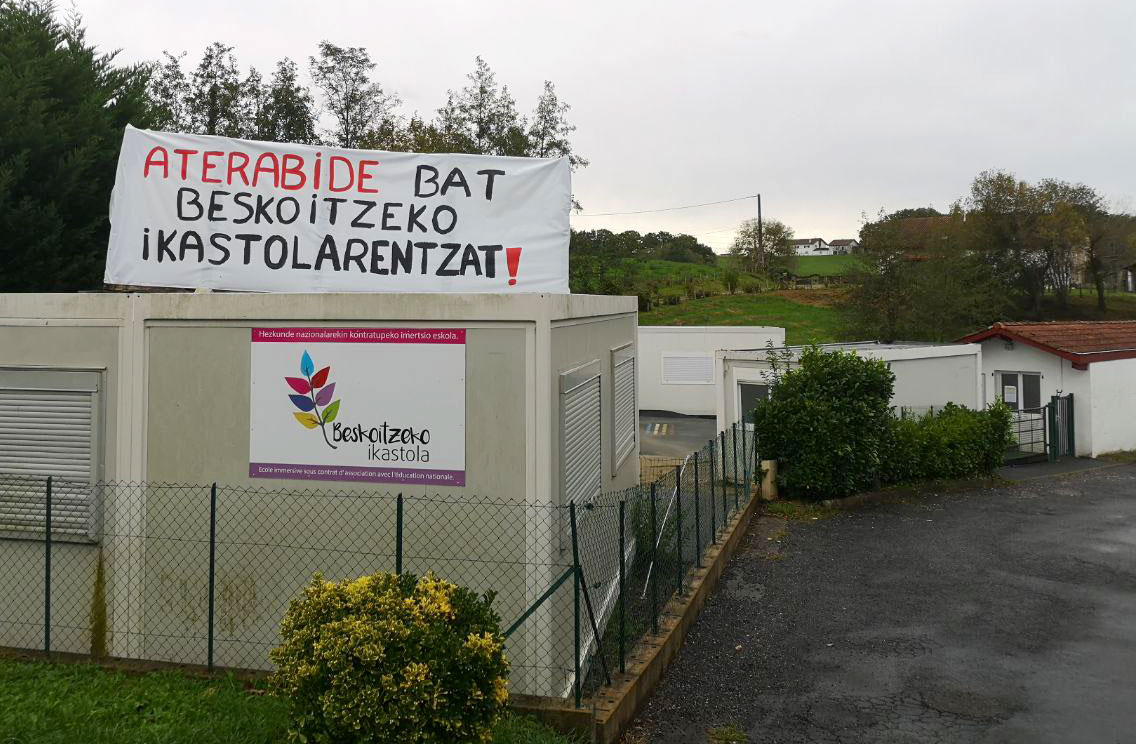25 students to start Vocational Training
- The Liceo Bernat Etxepare will open the next course 2017-2018 the Vocational Training Department of the Basque Government. In addition, it will premiere new headquarters in Baiona. About 280 students are currently learning and 25 more will be taught in vocational training. The director of the Liceo, Hélenè Charritton, has explained the details of this new project.

There are 3,400 students in Seaska, according to the Basque Department of Education. The Federation of Ikastolas of Iparralde manages a total of 34 centres: ten maternal ikastolas, twenty first year, three schools and one lycée. The new course will have a total of four schools. In addition, it will open the Department of Vocational Training. The idea of opening the new section is based on two pillars: administrative and pedagogical. The financing of the institutions is the responsibility of the Aquitaine Region. However, vocational training is not well developed in private schools: "There are two laws in force, the laws of Falloux and Astier. The first reduces aid to private centres, while the other, on the contrary, provides a lot of money to develop vocational training. The General Council has financed our project with seven million euros,” says Bernat Etxepare, director of the Liceo Hélène Charritton.
The Liceo celebrates this year 25 years. Two years ago, a department was opened in the field of technology in the lyceum. In this sense, Seaska proposed to the district's education delegation to develop the Vocational Training Department: “We have agreed with the New Aquitaine Council, through the Rectorate of Education, an agreement to host the professional Lyceum in the construction of the present Lyceum.” Laws are often contradictory. One example of this is the opposition to the law of Falloux and Astier. However, through the struggle, solutions are detected between the administration and the teaching agents; proof of this is the work of SEASKA.
Seaska offers her students three subjects to work in the Professional Low: Sale in
Commercial Crops, AVS Title of School Assistant and Audiovisual Productions
In addition to the management that has been carried out with the administration, those responsible for SEASKA have had to pay special attention in the educational field: “SEASKA has long realized that the student loses his way from the College to the Liceo. The number of these students has been growing, more than half (50-60%) go to the professional working world and we want them to continue learning with us. With this new project we intend to ensure education in Basque Country of Baxaino”, said the interlocutor. Baccalauréat in French is a prerequisite for higher education. In France in general and in the Northern Basque Country as well, 25-30% of students continue their Vocational Training studies. About 10,000 students work in the Iparralde lyceums. Of these, 280 are at the Etxepare Lyceum.
This new department of Vocational Training begins its work at the Liceo Etxepare. The start of new initiatives is not usually easy, they must be worked out with pedagogical caution. For example, students can choose between three areas to obtain the General Low: literature, economy and science. The last 25 years have been worked in Seaska: “In the low-tech, on the other hand, there are ten areas, among which you can get over 100 different titles. We want to develop a branch of them: that related to the business world. A committee has identified the needs and taken into account the following ideas to start defining the professions: that Euskera be valued in studies and in companies. Likewise, have the same opportunities for boys and girls”.
Start off on a simple path. The possibility to opt for Bajo titles in the field of industry and cultivation has been ruled out. Due to the need for major mechanical means for the development of the primary sector and the consolidation of the second sector in the North: “It would be impossible to compete with those who work in these fields, who speak French.”
Therefore, SEASKA offers students to work in the Professional Low of three departments: 1. Trade in crop sales. 2nd Title AVS (Aid for Fri Scolaire / School Assistant). SEASKA hires a lot of people for the AVS post. 3. Audiovisual production studies.
French National Co-education has not yet approved the third department, which is located in tax havens. Seven students have already signed up for the AVS. Four students have been enrolled in the Department of Commerce. They are not enough to enlarge the section, but they are convinced that there will be more. Several students who are in schools have difficulty in going to the General High School and have been offered vocational training. That is to say, from now on, instead of going to French schools, you will have the opportunity to study in Seaska. In the coming years, students will learn general subjects, such as Euskera, French, mathematics or history, together with other students, and will work in their own department of vocational training to obtain the title of low professional.
New headquarters of the Etxepare Lyceum
The Liceo will open a new venue next year. It will be in Baiona, in the current environment. At the current headquarters, for its part, it will be the new college. In addition to the college of Kanbo, Ziburu and Larzabal, it will be the fourth college to host Baiona in the working capital. The Liceo General will involve 280 students and Vocational Training 25. This student will receive 14 hours of specific weekly internship. To do this, two new teachers are needed, whose profile is already being worked out to recruit them.
At the opening of the Department of Vocational Training, the project managers have focused on teaching in Hego Euskal Herria: “Our first goal has been to work on the relationship with the Hegoalde centres. In Iparralde it is difficult to practice in Basque. We would like to focus one third of the practices in the South. We are collaborating with the Xabier Zubiri-Manteo College of San Sebastian,” says Charritton.
However, the director of the Liceo Etxepare complained about the low attitude that society in the South has adopted towards the French language: “English moves towards French.” In his view, in order to normalize relations between citizens on both sides, French should regain the importance it has had in the past. This seems evident for the development of vocational training: “In three years we will see how our project has been developed, but for us it is essential to multilingualism in order to promote cross-border dynamics: first the Basque country, and then the Spanish and the French. We should work on the confluence of the three languages, giving priority to the Basque country and working on the other two at the same time. Our illusion is that our students are heading to the South and vice versa, that those from there come here. Develop normal relationships to leave behind the exoticism that has been reinforced with English.”
In any case, the SEASKA association has not complained. It works with various actors in education in the South and public institutions. They have had the support of several companies from the towns of Oiartzun and Segura, as well as the subsidy of the ikastola de Errenteria: “We have had the excellent reception of many agents to carry out the project, we feel supported, we have words of thanks for all of them.”
The SEASKA federation has been able to enter the programme with a hundred more students than last year. With two-year-olds joining in the coming months, the limit of 4,300 pupils will be exceeded. In the first year, the increase is 33 students, but the most outstanding is the... [+]
Haserre mintzatu da Peio Jorajuria Seaskako lehendakaria, Beskoitzeko Herriko Etxeak astelehenean hartutako erabakiarekin. 51 haur dituen ikastolarekin hitzarmena eten du auzapezak, eta sei hilabeteren buruan debekatuta izango dute bertan eskolak ematea. Gurasoek harridura... [+]
Egoera tirabiratsua bizi dute Beskoitzeko ikastolako gurasoek herriko etxearekin. Herriko gelak baliatzeko debekuak, baimen ezeztatzeak edota jantegi publikoan bazkaltzeko mugak...






















